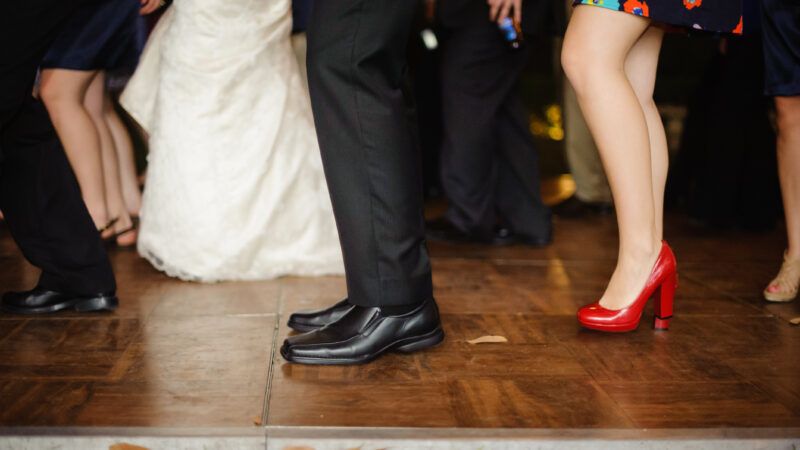New Lawsuit Argues That D.C.'s Ban on Dancing at Weddings Violates the First Amendment
A bride-to-be says the regulation is an irrational and unconstitutional restriction on her special day.

D.C.'s ban on dancing at weddings provoked eyerolls when it was first announced. Now a bride-to-be is suing to stop the regulation, arguing that it is an irrational and unconstitutional restriction on her special day.
On Monday, Margaret Appleby—a doctoral student and D.C. resident—filed a lawsuit against D.C. Mayor Muriel Bowser and D.C. Attorney General Karl Racine in U.S. District Court, arguing that a ban on dancing at her upcoming June wedding violates her First Amendment rights.
"The First Amendment does not permit the District to irrationally discriminate against wedding dancing, while simultaneously allowing equally dangerous, though less expressive, activities to continue without remark," said Adam Schulman, a senior attorney with the Hamilton Lincoln Law Institute, which along with the Liberty Justice Center is representing Appleby.
The wedding dancing ban was first announced as part of Bowser's April 26 public health order. That order allows "multi-purpose" facilities to host weddings and other "special non-recurring events" at 25 percent capacity without the need for a special city waiver starting May 1. But it also required attendees to be seated. "Standing and dancing are not allowed," reads the order.
This restriction applies to Appleby's wedding in spite of all the other health precautions she had agreed to take, including requiring guests and vendors to be masked (unless seated and eating), making available guests' contact information for contact tracing purposes, and providing hand sanitizer throughout the venue.
Appleby and her fiance were planning to have a maskless "first dance," which they assumed was permissible given that they are members of the same household and have both been vaccinated. The explicit ban on dancing came as a shock to them, and to wedding planners throughout the city.
Both dancing and wedding rituals, Appleby's lawsuit argues, are First Amendment–protected expression. To restrict this expression while permitting dancing in fitness classes and strip clubs is, it says, "arbitrary and underinclusive."
Their lawsuit also argues that D.C.'s restriction on expressive dancing is not "narrowly tailored" to achieve the city's public health goals, because it bans dancing even if participants are masked or vaccinated.
The lawsuit asks that D.C.'s ban on masked, socially distanced dancing be ruled unconstitutional and the city be prevented from enforcing it.
The reopening of the country's most restrictive jurisdictions—a group that definitely includes D.C.—has produced a bizarre mix of restored freedoms and arbitrary restrictions. COVID-hawk governors and mayors are begrudgingly permitting more activities while also regulating them to death. Lawsuits like Appleby's are a necessary corrective to the absurd rules that are coming along with these halting reopenings.
